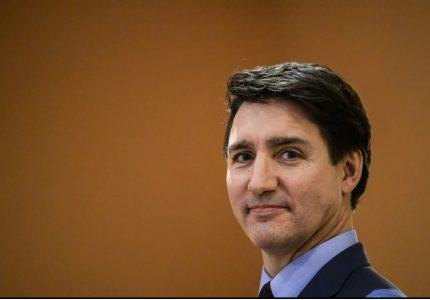
Trudeau's Shock Resignation Sparks Political Storm in Canada Amid Trump Tariff Tensions
Justin Trudeau announced his resignation as Prime Minister of Canada, triggering significant political upheaval as the country heads into 2025. This development follows the recent resignation of Finance Minister Chrystia Freeland over disputes regarding economic policies and U.S. trade relations.

Smiling Justin Trudeau portrait
The resignation comes amid several key factors:
- Freeland's departure over disagreements about handling potential 25% tariffs from incoming U.S. President Donald Trump
- Trudeau's historically low 22% approval rating (Angus Reid's "Trudeau Tracker")
- Strong opposition from Ontario, Quebec, and Atlantic Canada Liberal caucuses
- Conservatives under Pierre Poilievre leading polls at 44.2% with projections of 227 seats
The minority Liberal government's stability now depends on the New Democratic Party (NDP) under Jagmeet Singh, whose support has been crucial through a formal agreement between the parties.
Potential successors to Trudeau include:
- Mark Carney (former Bank of England governor)
- Chrystia Freeland
- Melanie Joly (Minister of Foreign Affairs)
- Dominic LeBlanc (current Finance Minister)
Current prediction markets indicate:
- 61% chance of an election by April
- 91% probability of Poilievre becoming the next Prime Minister
- 1% likelihood of a successful no-confidence motion in 2024
- Conservatives favored at -2000 odds (Liberals at +900) according to BetMGM
If Parliament is prorogued during the Liberal leadership campaign, it could delay any non-confidence vote and potentially push a national election into summer 2025. The originally scheduled election date was October 20, 2025.
Related Articles

Prediction Markets: Canada's Political Turmoil Sparks U.S. Statehood Speculation

